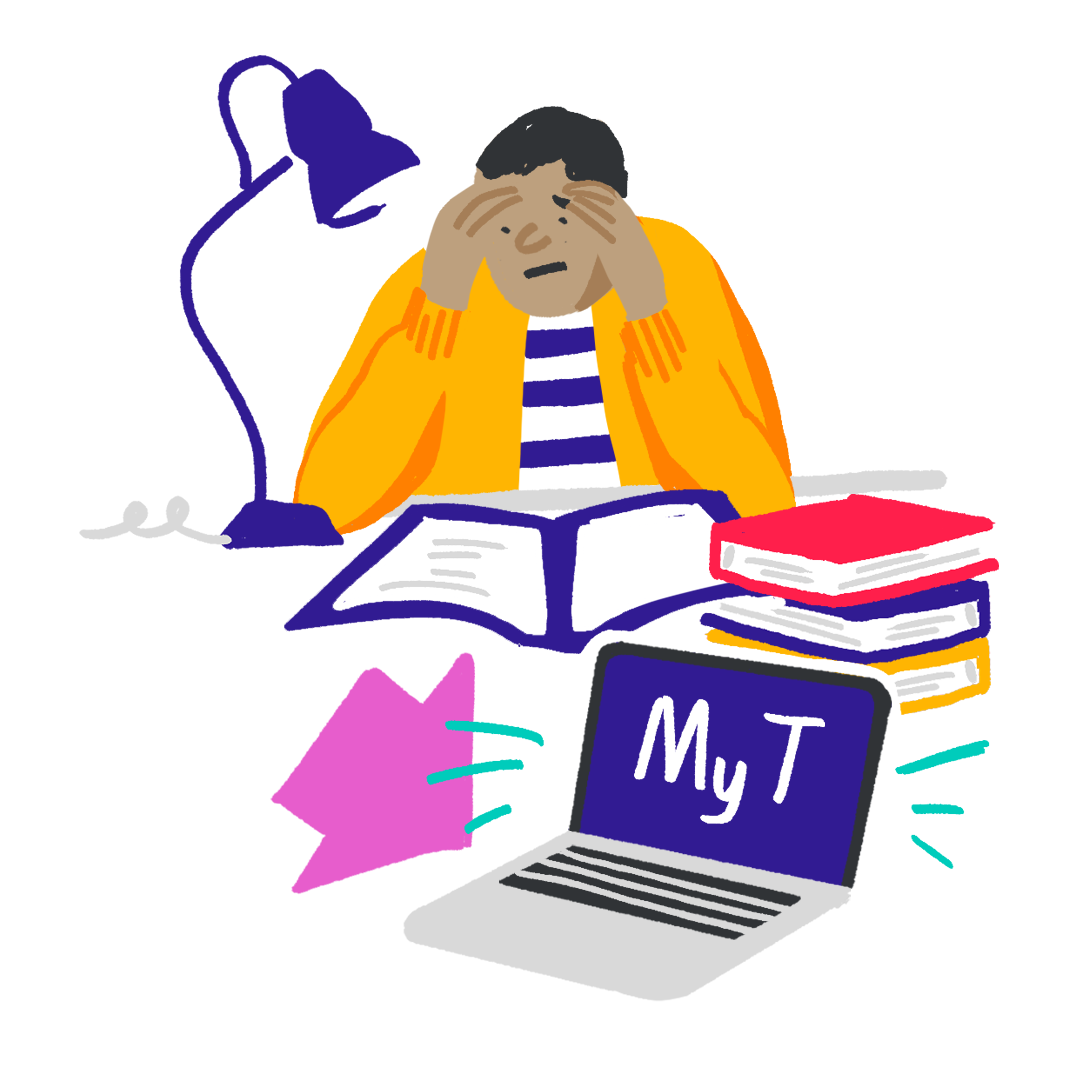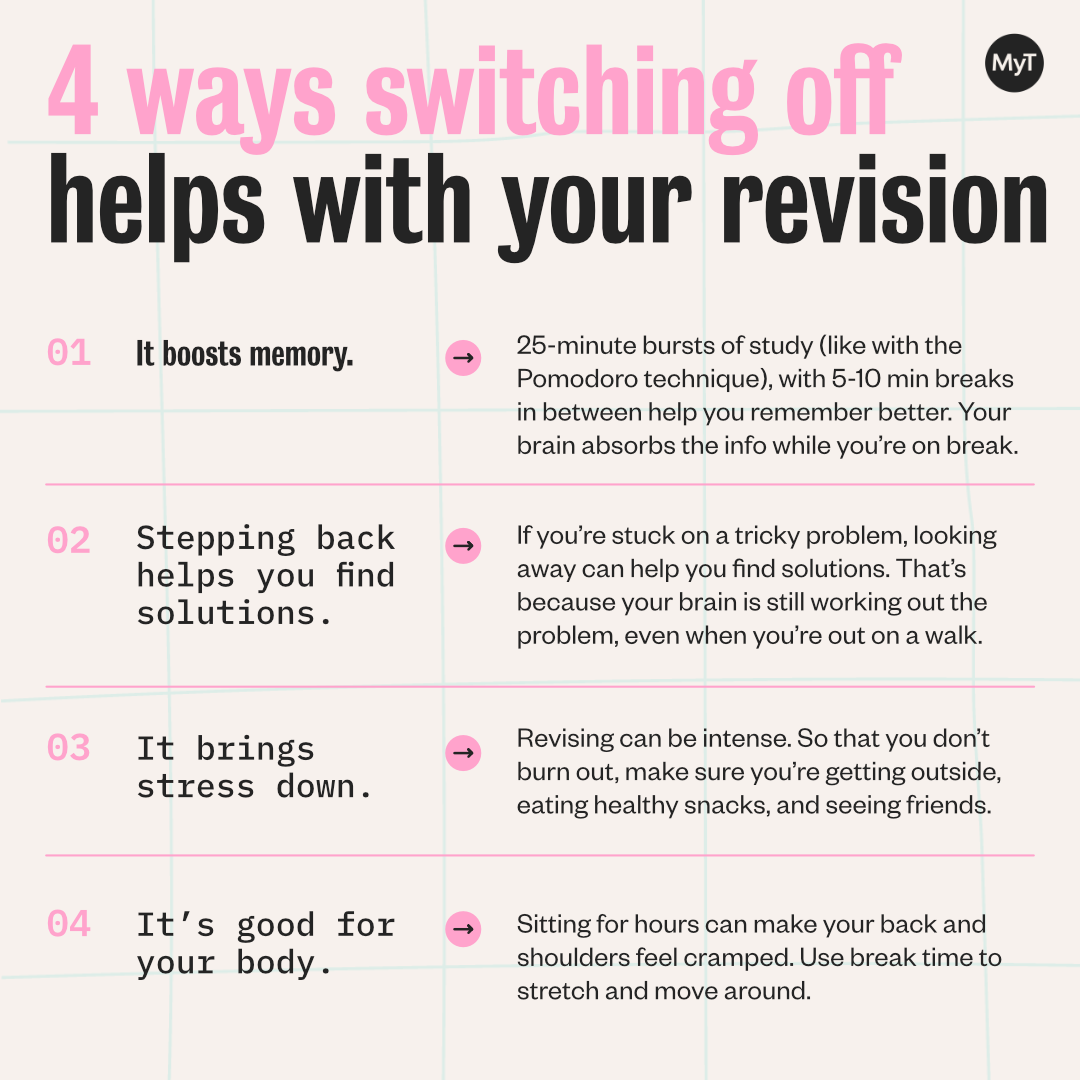Whether they’re preparing for exams or just feeling the pressure from schoolwork, it’s normal for teens to feel stressed at school. However, if this stress starts to build or your teen feels overwhelmed for long periods of time, this can lead to something called burnout.
60% of young people (aged 18-24) have felt so stressed by the pressure to succeed that they’ve felt overwhelmed or unable to cope, according to a survey by the Mental Health Foundation. The good news is that having the support of their parents or guardians can make a big difference.
Here, we share how to spot the signs of burnout in teens and how you can support them through it.
What is burnout?
Burnout is when your teen is physically and emotionally exhausted as a result of stress. It can happen if they’re experiencing long-term stress or overwhelm – whether caused by school work or the pressure to get good results and succeed. Burnout isn’t something that goes away on its own. It can get worse if you don’t address the underlying causes of it.
What’s the difference between anxiety and burnout?
Anxiety is a common mental health issue caused by feelings of worry, nervousness and fear. This can be overwhelming and anxiety can interfere with your teen’s daily life. It’s usually caused by different things like stress, trauma and potentially underlying medical conditions.
Burnout is different. This is a state of physical, emotional, and mental exhaustion. It can cause your child to feel less motivated, more irritated and less interested in things. It’s usually caused by long-term exposure to stress like studying for long hours or dealing with challenging things at school like exam and peer pressure.
5 signs of burnout in teens to look out for
It’s important to note that you know what’s normal for your teen, and the experience of stress and burnout is different for everyone. But, if you notice any big differences in your teen’s physical or mental health, visit a GP for support.
Here are some of the key signs of burnout in teens to spot:
1. They’re not sleeping or eating well
Exam stress can affect your teen’s mental and physical health. If things are feeling overwhelming or too much for them, this may start to affect their appetite and sleep. You might not be able to keep tabs on your teen’s sleep habits all the time, but if they look tired, they’re falling asleep during the day, or they’re more irritable than usual, these may be signs that they’re not getting enough slumber.
They’re appetite can take a hit too. Are they skipping meals? Leaving lots of food on their plate? Or, are they eating tons of junk food? While your teen’s relationship with food isn’t something to judge or shame, under or overeating can be signs that they’re feeling unhappy and overwhelmed.
2. They’re a lot more irritable or frustrated
If they’re lashing out or having meltdowns, they might be feeling the pressure. Teenage years can be difficult at time anyway, with their brains going through lots of changes. But, if you’re seeing a big difference in their mood during exam season, it could be a sign of burnout.
They might be feeling frustrated that they have gaps in their learning or because they’re just not getting certain subjects of topics. Or, they’re overworking because they’re worried about meeting high expectations. Whatever the reason behind their stress – there’s a good chance they might take it out on those closest to them.
3. They want to spend a lot more time alone


When they’re not seeing friends and keeping to themselves more than usual, it might be a sign that they’re having a hard time. There are behaviours you can look out for, like if they’re lying in bed staring up at the ceiling, or at their screens for hours at a time – it’s a good idea to check-in to see what’s going on.
4. They’ve lost interest in things they normally enjoy
Hobbies and interests are so important to your teen’s wellbeing. It helps keep them balanced. But if they’re pulling away from the things they love– like football practice or even just watching their favourite shows, it might be a sign they’re overworking.
5. They’re getting headaches or ill more
If they’re complaining about frequent headaches or you’re finding they’re catching colds and flu more often, this could also be a sign of burnout. The heightened level of stress can suppress the immune system and cause physical symptoms like headaches and also stomach issues like bloating, feeling seek and diarrhea or constipation.
How can you help prevent burnout in teens (and help them get through it)?
It’s completely normal for you to worry when your teen’s going through a stressful time. But there’s still lots you can do as a parent to help them along. Exam season is a bit like a marathon, and it takes regular self-care to make it to the finish line.
1. Have regular chats to check in


Having regular time together makes it easier for your teen to open up. Dr Louise Egan, a child psychologist, says it’s important to find out why your teen is working themselves so hard. “Do they think they’re not good enough? Are they worried about what you think? Spending regular time with your teen means you can get a better picture of why they’re so anxious,” she says.
There’s no quick fix. But you can put your teen in the driver’s seat by asking them: ‘What can I do to help?’ You might be surprised by how they open up. And with lots of chats and encouragement, you can help them work out a more balanced relationship with their revision or school work.
2. Help them build down-time into their schedules
A revision timetable can help your teen to stay on top of things. It means they can relax too, since they’ve scheduled their study time. To make their day-to-day more balanced, encourage them to slot in fun activities, like trips to the cinema or catch ups with friends.
If they’re still stressed about spending time away from revision, let them know how breaks are actually good for their brain, allowing it to recharge and help them learn better.
Here’s something you can share with your overworking teen:


3. Give them advice on managing screen time
Screen time isn’t all bad, in fact there are lots of helpful learning resources they can tap into while they’re revising. But, screens can have a negative effect on their wellbeing too. Too much blue light before bed can disrupt their sleep and it’s been proven endless scrolling can affect their mental health.
Encourage them to switch off notifications when they’re studying and have a break from their screens 1-2 hours before bed. Read our guide to balancing screen time for more tips and advice.
4. Reach out for support
There are times when they just need a helping hand from an expert. Whether that’s with a tutor (if their anxiety comes from learning gaps), or with a healthcare professional – there are people and organisations here to help teens.
Here are a few good resources to tap into, recommended by the NHS:
- Child and Adolescent Mental Health Services (CAMHS)
- Kooth which delivers psychological support for teens
- Mental health apps: Catch It, Blueice, Chill Panda
Of course, advice from experts is always handy, but you know better than anyone else when your child is struggling. With a few of these tips, you can spot the signs of burnout in teens and increase their chance of getting through exams feeling calm and confident.
Looking for a tutor to support your child and help them feel more on top of their schoolwork? Find the tutor that’s right for them here.




